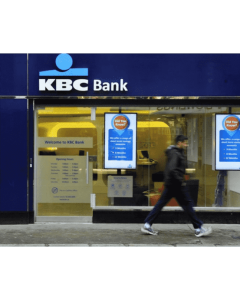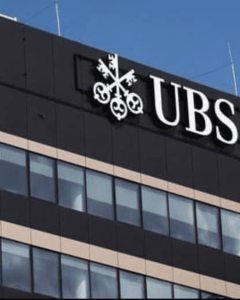Lloyds Bank Boosts Borrowing Limits for First-Time Buyers
Lloyds Bank raises mortgage limits to 5.5 times income for first-time buyers. Will other lenders adopt similar policies in response?
In a significant shift within the UK mortgage landscape, Lloyds Banking Group has announced an increase in the maximum amount it is willing to lend to first-time buyers. This move, part of a broader £2 billion initiative, allows eligible borrowers to secure mortgages worth up to 5.5 times their household income. This decision is expected to make home ownership more accessible for many, yet it raises concerns about the potential impact on housing prices and the overall affordability of mortgages.
A New Era for First-Time Buyers
Historically, the maximum amount that lenders would allow individuals to borrow was capped at 4.5 times their annual income. However, Lloyds’ new policy marks a notable departure from this norm, allowing buyers with an income of £50,000 to borrow as much as £275,000, a 22% increase from the previous limit of £224,500. This change is particularly significant in a market where soaring house prices and rising living costs have created what many experts describe as the most challenging conditions for first-time buyers in nearly 70 years.
The decision by Lloyds, which operates under both the Lloyds and Halifax brands, is seen as a strategic response to the competitive mortgage market. In recent months, lenders have been vying for market share, leading to a resurgence of fixed-rate deals priced below 4% for the first time since February. This trend has been fueled by the Bank of England’s interest rate cut on August 1, with expectations of further reductions on the horizon.
The Implications of Increased Borrowing Limits
While the increase in borrowing limits is poised to benefit many aspiring homeowners, it also raises questions about the sustainability of such lending practices. Industry experts have expressed concerns that stretching affordability criteria could lead to a repeat of the reckless lending practices that contributed to the financial crisis of 2007-08. During that period, lending standards were significantly tightened, with the Bank of England imposing strict limits on mortgages exceeding 4.5 times earnings.
Despite these concerns, Lloyds has assured potential borrowers that they will still need to meet stringent affordability criteria. For instance, applicants must have a minimum annual household income of £50,000 and provide a deposit of at least 10% of the property’s value. This means that the maximum loan-to-value ratio will be capped at 90%, which serves to mitigate the lender's risk while simultaneously excluding many potential buyers from the market.
The Broader Context of the Mortgage Market
The recent changes in Lloyds’ lending policy come at a time when the UK housing market is experiencing significant fluctuations. The combination of rising house prices, increased mortgage costs, and broader economic pressures has made it increasingly difficult for first-time buyers to enter the market. According to estimates, over half of first-time buyers now require loans exceeding 4.5 times their income, a figure that rises to 80% in London.
As competition in the mortgage sector intensifies, other lenders may feel compelled to follow suit. The potential for a price war among mortgage providers could lead to further increases in borrowing limits, which, while beneficial for buyers, may exacerbate the already challenging housing market dynamics.
A Cautious Optimism for Aspiring Homeowners
For many first-time buyers, the prospect of securing a mortgage that allows for a higher borrowing limit is a welcome development. It opens doors to properties that may have previously seemed unattainable. However, it is essential for prospective homeowners to approach this opportunity with caution. The increased borrowing capacity should not overshadow the importance of understanding one’s financial situation and the long-term implications of taking on a larger mortgage.
The housing market remains unpredictable, and while the current trends may suggest a more favorable environment for buyers, the risks associated with higher debt levels cannot be ignored. As Lloyds and other lenders navigate this evolving landscape, it will be crucial for them to balance the desire to support home ownership with the need to maintain responsible lending practices.
Lloyds Banking Group’s decision to increase the maximum borrowing limit for first-time buyers represents a significant shift in the UK mortgage market. While this move has the potential to make home ownership more accessible for many, it also raises important questions about affordability and the sustainability of such lending practices. As the market continues to evolve, both lenders and borrowers must remain vigilant in navigating the complexities of home financing. The coming months will be critical in determining whether this initiative will lead to a more inclusive housing market or contribute to further inflation in property prices.
Lloyds Bank Boosts Borrowing Limits for First-Time Buyers
KBC Bank Recovers €800M in Customer Deposits
KBC Bank has regained more customers than lost post-Belgian State bonds, adding €800 million in deposits. Discover the details here.
KBC Bank has regained more customers than lost post-Belgian State bonds, adding €800 million in deposits. Discover the details here.
Read moreSantander UK Adjusts Mortgages After Rate Cut
In light of the Bank of England's 0.25% rate reduction to 4.75%, Santander UK announces significant changes to its mortgage offerings.
In light of the Bank of England\'s 0.25% rate reduction to 4.75%, Santander UK announces significant changes to its mortgage offerings.
Read moreUBS Launches Blockchain Pilot for Cross-Border Payments
Swiss bank UBS successfully pilots its blockchain-based UBS Digital Cash, aiming to enhance efficiency in cross-border transactions.
Swiss bank UBS successfully pilots its blockchain-based UBS Digital Cash, aiming to enhance efficiency in cross-border transactions.
Read moreSantander’s Profits Hit €9.309 Billion
Spanish financial group Santander reports €9.309 billion in profits for the first nine months of 2023, a 14% increase from last year.
Spanish financial group Santander reports €9.309 billion in profits for the first nine months of 2023, a 14% increase from last year.
Read moreBNP Paribas Reports Net Income Boost from Corporate Banking
BNP Paribas has recorded a notable increase in net income, fueled by strong performance in its corporate banking sector. Explore the details.
BNP Paribas has recorded a notable increase in net income, fueled by strong performance in its corporate banking sector. Explore the details.
Read moreASR Divests Knab to Bawag Group for €590 Million
ASR's strategic sale of Knab to Bawag Group marks a €590 million deal, with €100 million allocated for share repurchase to boost shareholder value.
ASR\'s strategic sale of Knab to Bawag Group marks a €590 million deal, with €100 million allocated for share repurchase to boost shareholder value.
Read moreUBS’s Asset Management Launches First Tokenized Investment Fund
UBS Asset Management has launched its inaugural tokenized investment fund, highlighting a significant trend in the evolving financial landscape.
UBS Asset Management has launched its inaugural tokenized investment fund, highlighting a significant trend in the evolving financial landscape.
Read moreSwiss National Bank Reports CHF62.5 Billion Profit
The Swiss National Bank (SNB) has generated a remarkable CHF62.5 billion profit in the first nine months of this year, reflecting robust financial performance.
The Swiss National Bank (SNB) has generated a remarkable CHF62.5 billion profit in the first nine months of this year, reflecting robust financial performance.
Read moreProfits Rise at Standard Chartered’s Wealth Arm
Standard Chartered's wealth division reports an 11% profit increase in Q3, fueled by a $1.5 billion investment to enhance services and capabilities.
Standard Chartered\'s wealth division reports an 11% profit increase in Q3, fueled by a $1.5 billion investment to enhance services and capabilities.
Read more














